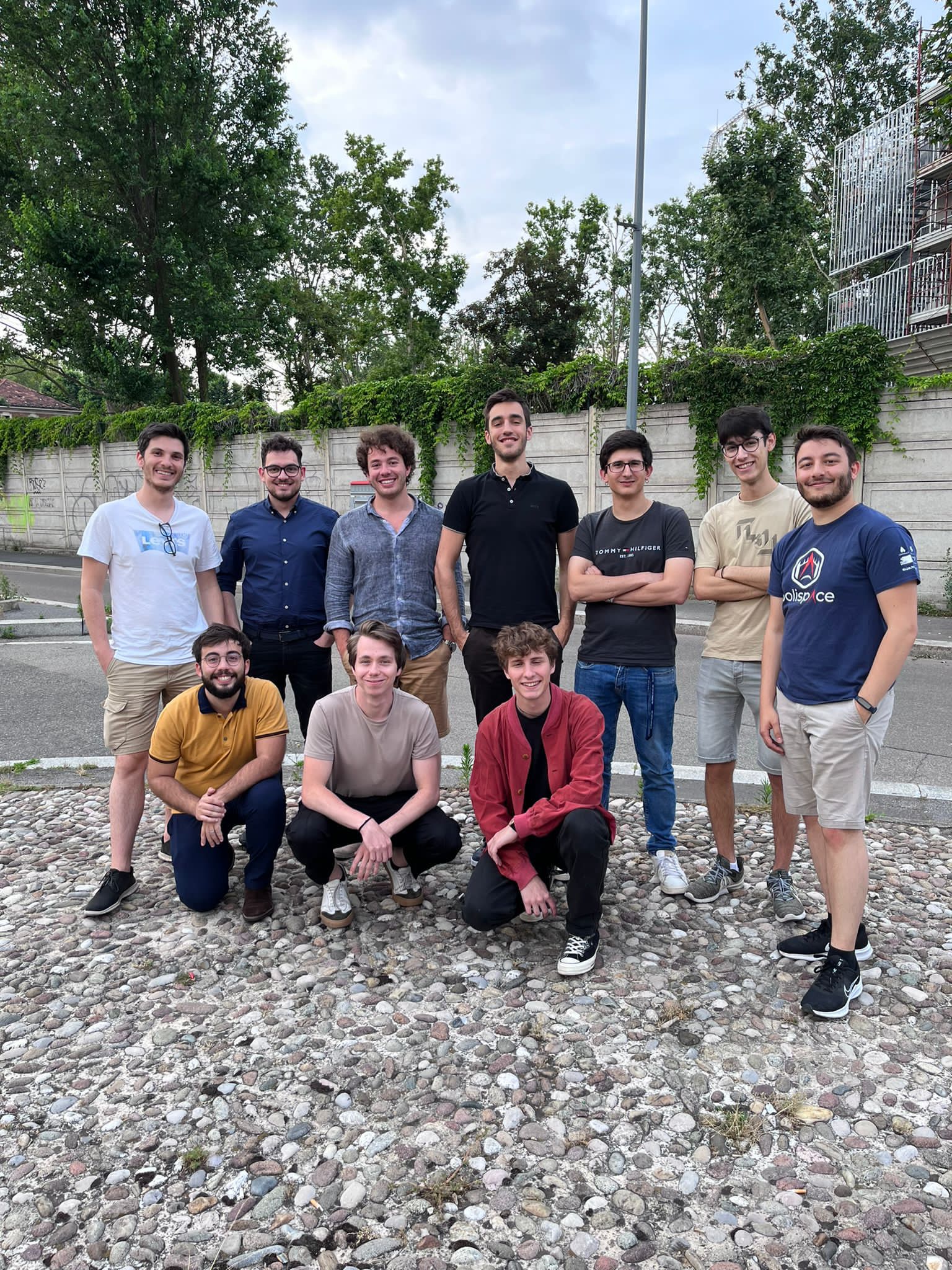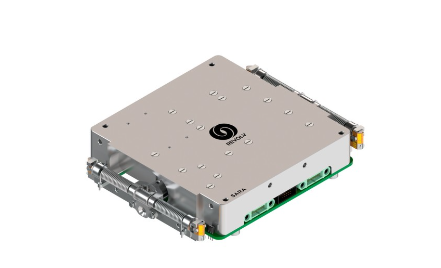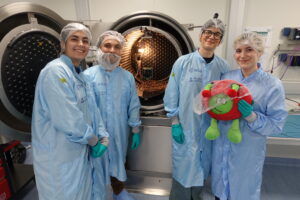Summer has begun, and whether you are working, studying, or planning vacations, you are also struggling with the heat. The lucky ones find refreshment under the shade of a tree in the park or by jumping into the cool waters of a swimming pool; others settle for a popsicle or a fresh drink. Everyone has their way of surviving these hot days on Earth, but how do you manage heat dissipation in space? Five PoliSpace Space-Tech division members asked themselves the same question while designing a heat dissipation system for SARA, a satellite component by Revolv Space.
What is Revolv Space?
Revolv Space is a NewSpace company with offices in Torino and Noordwijk, which manufacture small satellite components to maximize uptime service, as can be read on their website. SARA, which stands for Solar Array Rotary Actuator, is their first product.
It consists of a plug & play solar array drive mechanism that provides continuous battery charging through autonomous sun-tracking mode for small satellites. Currently under testing, its simulations show that the average power intake increased by up to +117% per orbit thanks to its automated sun-tracking ability. For this reason is a promising technology that can satisfy the needs of modern, power-hungry payloads and increase flexibility, pleasing contradicting pointing requirements. That’s not its only purpose: it can offer orbital maneuvering capabilities through differential drag and an End-Of-Life deorbit mode to speed up orbit decay, winking to a greener Low Earth Orbit.
The contribution of PoliSpace
One of the engineering challenges for Revolv’s SARA is similar to the one we are struggling with these hot days; insufficient heat dissipation could reduce the overall system efficiency with a substantial decrease in the power budget. The more a solar array faces the sun, the more heat it shall dissipate. Being the autonomous sun-tracking the main objective of SARA, Revolv asks PoliSpace to conduct a feasibility study on the heat dissipation system, accounting for thermal, structural, and mechanical aspects
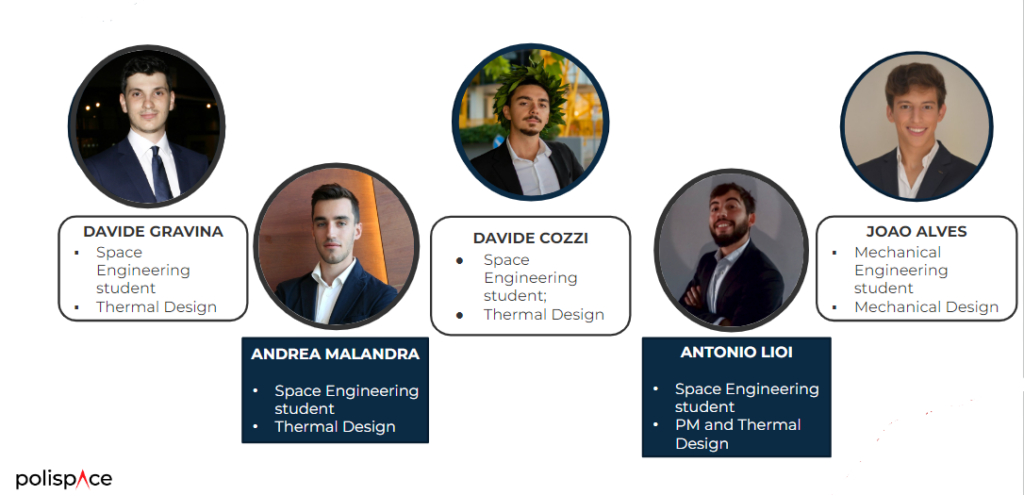
The job began in November 2022 and faced two main phases: in the first month, the group worked on literature research, and in the end, they came up with the first conceptual ideas respecting the requirements imposed by the company. In the second phase, they developed the mathematical models for the system simulation. Starting from simple models both from the structural and thermal points of view, they refined them after each results analysis, adding details to get closer to the actual system. Throughout the project phases, the group cooperated and exchanged opinions with Revolv’s team, and together they came up with the design of a heat dissipation system suitable for the critical working condition of the device.
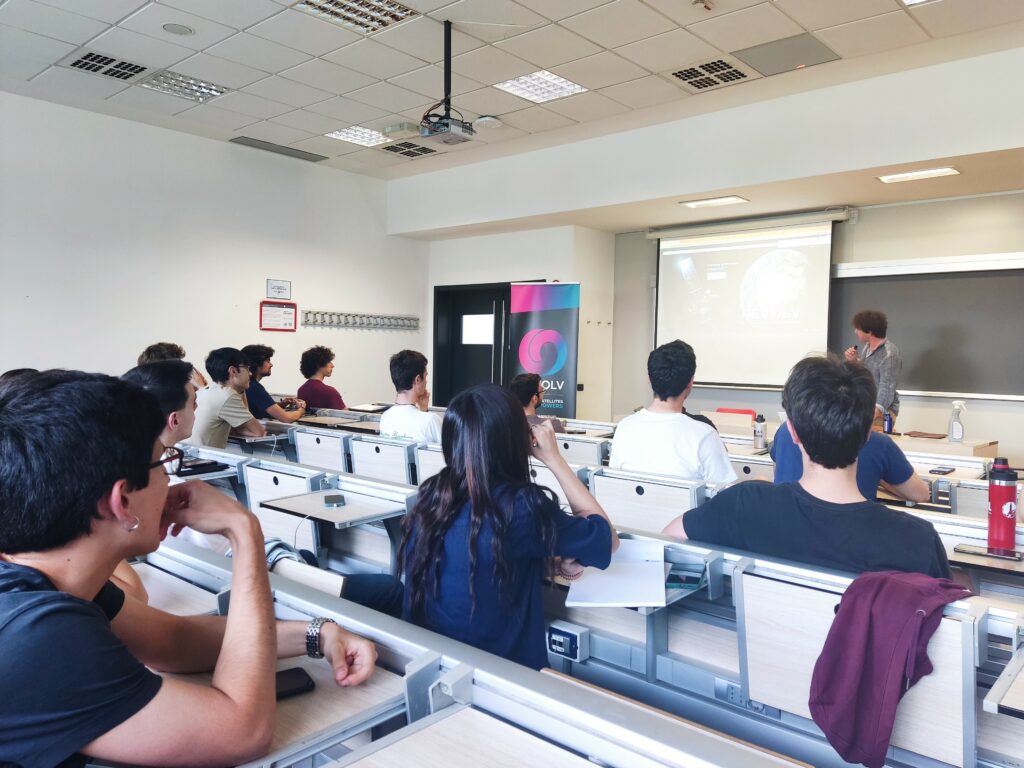
The collaboration extended beyond the conclusion of the project. PoliSpace members had the opportunity to attend a seminar with Filippo Oggioni and Marco Sala: co-founders, CCO, and CEO of Revolv Space. This project and what followed show the growth and importance of the association. In less than three years, PoliSpace has become a point of reference for those who want to put their studies into practice and create a link with industries. This is also confirmed by the words of Antonio Lioi, the group’s project manager:
“This experience was formative and exciting. Not only because it was practical work but because each of us had to go beyond the knowledge of individual disciplines to address a problem from different technical aspects simultaneously. On behalf of PoliSpace, it was an honor. We hope to collaborate again with companies with bright futures and prospects, just like Revolv, thanking them again for support and opportunities.” Not only was it practical work, but each of us had to go beyond the knowledge of individual disciplines to address a problem from different technical aspects simultaneously.

